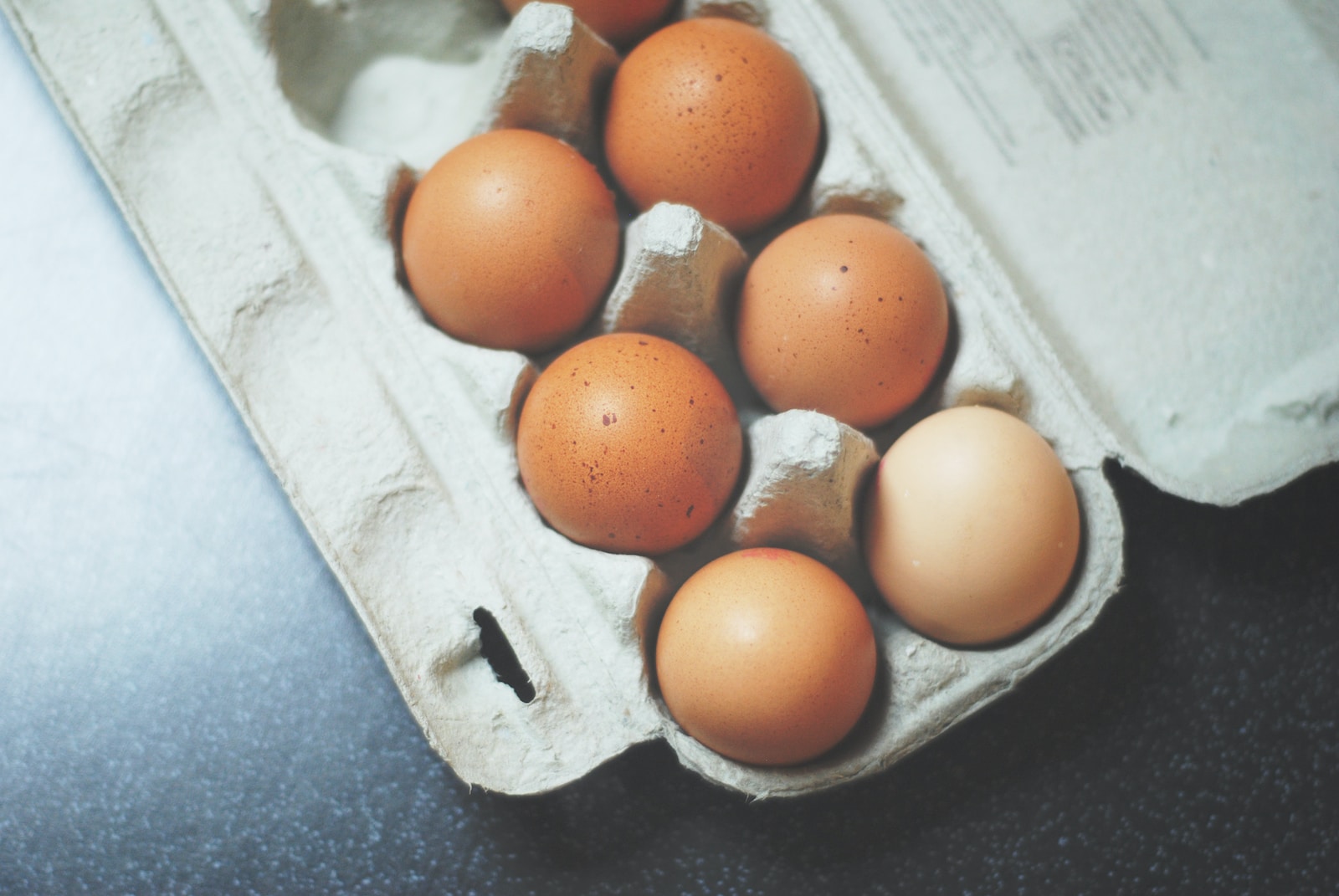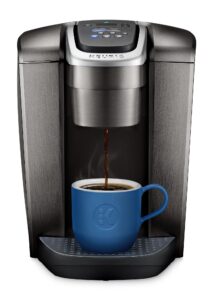Eggs are a staple in most households, whether you enjoy them scrambled, poached, or sunny-side up. But have you ever wondered how long your eggs can really last in the refrigerator?
Understanding egg freshness is crucial not only for culinary purposes but also for ensuring food safety. In this article, we will delve into the intricacies of egg storage and explore the factors that affect their shelf life.
A Shell of Brilliance: Unveiling the Hidden Secrets of Eggs
Eggs are incredible little creations. Each one is like its own self-contained universe, with a protective shell that shields its precious contents from the outside world. To truly appreciate eggs and their freshness, we must first understand the science behind them.
Every egg is equipped with a thin outermost layer called the cuticle—also known as the bloom—which acts as a natural barrier against bacteria and moisture loss. This invisible shield helps maintain freshness by preventing harmful microorganisms from entering through microscopic pores in the shell.
Beyond their defense mechanisms, eggs house an yolk and albumen masterpiece within their inner sanctum. The yolk provides essential nutrients such as vitamins A, D, E, and B12, while the albumen offers a rich source of protein that our bodies need to thrive.
The Importance of Understanding Egg Freshness
Now that we’ve unraveled some of nature’s secrets hidden beneath an eggshell, let’s discuss why understanding egg freshness matters to every aspiring chef or home cook. Firstly, ensuring your eggs are fresh enhances both taste and texture when used in various recipes.
Whether you’re whipping up a fluffy omelet or baking a delicate cake, fresh eggs contribute to superior flavor profiles and provide desirable results. Using expired eggs might leave your culinary masterpiece lacking in taste and overall quality.
Secondly, and more importantly, is the aspect of food safety. Consuming spoiled eggs can lead to unpleasant experiences such as food poisoning, which no one wants to endure.
Understanding how long eggs can remain safely stored in the refrigerator is vital to safeguarding your health and the well-being of those you feed. So, now that we grasp the fascinating inner workings of eggs and why their freshness is important for our cooking endeavors and health, let’s explore the factors that influence egg freshness in more detail.
Factors Affecting Egg Freshness
Temperature Control in the Refrigerator
When it comes to preserving the freshness of your eggs, temperature control in the refrigerator plays a vital role. The optimal temperature for storing eggs is around 40°F (4°C).
This cool temperature helps to slow down bacterial growth, keeping your eggs fresher for a longer time. So, don’t underestimate the importance of setting your fridge to the right temperature.
However, it’s essential to strike a balance and avoid extreme temperatures. Fluctuating temperatures can have a detrimental impact on egg quality.
If the temperature dips below freezing point or rises above 45°F (7°C), it can cause changes in the consistency of the egg whites and yolks over time, leading to reduced freshness. Therefore, maintaining a steady and moderate temperature is crucial for preserving your precious eggs.
Eggshell Condition and Cleanliness
Intact shells act as barriers against bacteria and moisture loss from within the egg. When an egg has cracks or damages on its shell, it becomes vulnerable to contamination by bacteria present in your refrigerator or surroundings.
Ensuring that your eggs are clean is also important for maintaining their freshness. Dirty shells can introduce harmful bacteria into the egg’s interior through hairline cracks or microscopic pores on their surface.
Therefore, make sure you handle eggs with care during transportation from store to home and always check for any signs of dirt or grime before storing them. By understanding how temperature control impacts freshness and keeping an eye on eggshell integrity and cleanliness, you will be well-equipped to ensure that your stored eggs stay fresh for as long as possible.
Shelf Life of Eggs in the Refrigerator
Fresh Eggs from the Grocery Store or Farm
When you bring home a carton of fresh eggs from the grocery store or directly from a farm, it’s important to understand their shelf life in order to consume them at their best. Typically, fresh eggs have an expiration date stamped on the carton, known as the “best before” date. This date indicates that the eggs will maintain their optimal quality until that time if stored properly.
General Guidelines for Refrigeration Duration
To keep your eggs fresher for longer, it’s crucial to refrigerate them promptly upon arrival. The optimal temperature for egg storage is around 40°F (4°C).
At this temperature, eggs can maintain their quality for several weeks beyond the “best before” date. However, it’s essential to note that refrigeration slows down but does not completely halt egg aging.
The “Best Before” Date and Its Significance
The “best before” date acts as a helpful guideline when determining an egg’s freshness. It indicates that the eggs should be consumed by that date to enjoy them at their finest quality.
However, it does not mean that they are immediately unsafe to eat afterward. As long as proper refrigeration has been maintained and no signs of spoilage are present, consuming eggs within a few weeks after this date is generally safe.
Extended Shelf Life Techniques
If you wish to extend the shelf life of your eggs even further, there are a couple of techniques you can try. One method is using an egg carton with a lid or cover to protect them from absorbing odors and moisture present in your refrigerator. Another technique is storing eggs in their original packaging since these containers are designed to provide optimal protection during transportation and storage.
Signs of Spoiled Eggs
Visual Indicators
When assessing the freshness of eggs, visual cues play a significant role. Examine the appearance, color, and texture of the egg before cracking it open. Fresh eggs have clear, bright yolks and transparent egg whites.
If you notice any discoloration or changes in texture like a thicker white or runny yolk, these might indicate deterioration. Additionally, performing the float test can give you an idea about freshness.
Fill a bowl with water and gently place an egg in it. If it sinks to the bottom horizontally, it is very fresh; if it slightly lifts on one end but still touches the bottom, it is less fresh but still safe to consume; if it floats entirely or stands upright on one end, discard it as it is likely spoiled.
Odor Detection
Another important aspect to consider when checking for spoilage is odor detection. Fresh eggs typically have a neutral smell or even a slight hint of earthiness.
However, as eggs age and begin to spoil, they develop an off-putting sulfuric smell that becomes increasingly pungent over time. If you encounter an unpleasant odor while cracking an egg or when sniffing its shell directly without breaking it open, this indicates spoilage.
Safety Precautions when Handling Suspect Eggs
When dealing with suspect eggs that show signs of spoilage such as unusual appearance or unpleasant odor, caution must be exercised to prevent any potential foodborne illnesses. It is advisable to discard these eggs rather than taking any risks with your health.
Conclusion
Understanding how long eggs remain good in the refrigerator helps ensure their freshness and safety for consumption. By following general guidelines for refrigeration duration and paying attention to “best before” dates while also employing extended shelf life techniques like using lidded egg cartons, you can prolong the lifespan of your eggs. Remember to rely on visual indicators, such as changes in color or texture, and perform the float test to assess their freshness.
Additionally, trust your sense of smell to detect any off-putting odors that may indicate spoilage. By being vigilant and taking necessary precautions, you can enjoy eggs at their best and minimize any potential risks.


